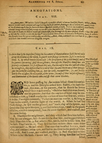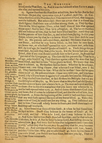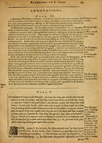To show that by his Baptism (being the Sacrament of illumination or faith) he will take away the blindness of the world, he giveth with strange ceremonies sight to one born blind. (8) By which wonderful miracle (the attestation of the party himself and of his parents concurring) first the neighbours, then also the Pharisees themselves are plainly confounded. Yet so obstinate they are, that because it was the Sabboth when he wrought it, they infer that he is not of God: yea and throw out of their Synagogue the party for confessing him. (35) But our Lord, receiveth him; (39) and foretelleth by this occasion, the excecation, of the Jews (because of their wilful obstinacy) and illumination of the Gentiles who confess their own blindness.
AND Jesus passing by, saw a man blind from his nativity; 2and his Disciples asked him: Rabbi, who hath sinned, this man, or his parents, that he should be born blind? Jesus answered: 3 [a] Neither hath this man sinned, nor his parents; but that the works of God may be manifested in him. 4I must work the works of him that sent me, while it is day. The night cometh, [b] when no man can work. 5As long as I am in the world, I am the light of the world. 6When he had said these things, he spit on the ground, and • made clay of the spittle, and spread the clay upon his eyes, 7and said to him: Go, [c] wash in the pool of Siloe, which is interpreted, Sent. He went therefore, and washed; and he came seeing.
8Therefore the neighbours, and they which had seen him before, that he was a beggar, said: Is not this he that sat, and begged? Others said: That this is he. 9But others: No, not so, but he is like him. But he said: That I am he. 10They said therefore to him: How were thine eyes opened? 11He answered: That man that is called Jesus, made clay, and anointed mine eyes, and said to me, Go to the pool of Siloe, and wash. And I went, and washed, and saw. 12And they said to him: Where is he? He saith: I know not. 13They bring him that had been blind, to the Pharisees. 14And it was the Sabboth when Jesus made the clay, and opened his eyes.
15Again therefore the Pharisees asked him: how he saw. But he said to them: He put clay upon mine eyes, and I washed; and I see. 16Certain therefore of the Pharisees said: This man is not of God, that keepeth not the Sabboth. But others said: How can a man that is a sinner do these signs? And there was a schism among them. 17They say therefore to the blind again: Thou, what sayest thou of him that opened thine eyes? And he said: That he is a Prophet. 18The Jews therefore did not believe of him, that he had been blind and saw, until they called the parents of him that saw, 19and asked them, saying: Is this your son, whom you say that he was born blind? how then doth he now see? 20His parents answered them, and said: We know that this is our son, and that he was born blind; 21but how he now seeth, we know not, or who hath opened his eyes, we know not, ask himself; he is of age, let himself speak of himself. 22These things his parents said, because they feared the Jews. For the Jews had now conspired, that if any man should confess him to be Christ, he should be • put out of the Synagogue. 23Therefore did his parents say: That he is of age, ask himself. 24They therefore again called the man that had been blind, and said to him: [d] Give glory to God. We know that this man is a sinner. 25He therefore said to them: Whether he be a sinner, I know not; one thing I know, that whereas I was blind, now I see. 26They said therefore to him: What did he to thee? how did he open thine eyes? 27He answered them: I have now told you, and you have heard; why will you hear it again? will you also become his Disciples? 28They reviled him therefore, and said: Be thou his Disciple: but we are the Disciples of Moyses. 29We know that to Moyses God did speak; but this man we know not whence he is. 30The man answered and said to them: For in this it is marvellous that you know not whence he is, and he hath opened mine eyes. 31And we know that sinners God doth not hear. But if a man be a server of God, and do the will of him, him he heareth. 32From the beginning of the world it hath not been heard that any man hath opened the eyes of one born blind. 33Unless this man were of God, he could not do anything. 34They answered and said to him: Thou wast wholly born in sins, and doest thou teach us? And they did cast him forth.
35Jesus heard that they cast him forth; and when he had found him, he said to him: Doest thou believe in the Son of God? 36He answered, and said: Who is he Lord, that I may believe in him? 37And Jesus said to him: Both thou hast seen him; and he that talketh with thee, he it is. 38But he said: I believe Lord. And falling down he adored him. 39And Jesus said to him: For judgement came I into this world; [e] that they that see not, may see; and they that see, may become blind. 40And certain of the Pharisees that were with him, heard; and they said to him: Why, are we also blind? 41Jesus said to them: If you were blind, you should not have sin, but now you say, That we see. Your sin remaineth.
Footnotes
- ↑ Though many infirmities fall for sin, yet not all: some coming for probation, and some sent that God by the cure thereof may be glorified.
- ↑ The time of working, and meriting, is in this life: after death we can deserve no more by our deeds, but must only receive good or ill, according to the difference of works here.
- ↑ This was a figure of Baptism, to which all men born in sin and blindness are sent for health and sight Amb lib. 3. ch. 2. de Sacramentis.
- ↑ So say the Heretics when they derogate from miracles done by Saints or their Relics, pharisaically pretending the glory of God. As though it were not God’s glory, when his Saints do it by his power and virtue: yea his greater glory, that doth such things by his servants, and by the meanest things belonging to them, as Peter’s shadow Act. 5. and Paul’s napkins Act. 19.
- ↑ By this we see that this miracle was not only marvellous and beneficial to the blind, but also significative of taking away spiritual blindness.
ANNOTATIONS. CHAP. IX.
↑ 6. Made clay.) Christ that could have cured this man by his only will or word, yet used certain creatures as his instruments in working, and diverse circumstances and ceremonies, clay, water, anointing, washing, &c. No marvel then that he and his Church use such diversities of Sacraments and ceremonies external in curing our souls.
↑ 22. Put out of the Synagogue.) The Heretics untruly translate here (and v. 35.) Excommunicate: to make the simple conceive the Church’s Excommunication to be no other, or no better, or no more rightly used against them, than this casting out of the Synagogue of such as confessed our Saviour. They might as well have Translated for Synagogue, Church: for the old Testament, the new: for Law, grace: for flesh, spirit: for Moyses, Christ. For no less difference is there between casting out of the Synagogue, and Excommunication. Besides that, not every one which was not of the Jew’s Synagogue, was therefore out of the communion of the Faithful, many true believers being in other parts of the world not subject to the Jew’s Synagogue, Law, nor Sacraments. And therefore it was not all one to be out of the Synagogue, and to be excommunicated, as now, whosoever is out of the Church’s communion, either by his own will, or for his just deserts thrust out of it by the spiritual Magistrate, he is quite abandoned out of all the society of Saints in Heaven and earth, so long as he so continueth.
As for the cause of thrusting this poor man and such other out of the Synagogue, and excommunicating Heretics, there is as great odds as betwixt Heaven and hell: he being used so for following Christ and his Church these for forsaking Christ and his Church. Some more agreement there is between that corrupt sentence of the Jews against the followers of Christ, and the pretended excommunication executed against Catholic men by our Heretics: although in truth there is no great resemblance. For, the Jews though they abused their power sometimes, yet had they authority indeed by God’s law so to punish contemners of their Law, and therefore it was feared and respected even of good men. But the excommunication used by heretics against Catholics or any offenders, is not to be respected at all, being no more but a ridiculous usurpation of the Church’s right and fashion of the same. For, out of their Synagogues all faithful men ought to fly, and not tarry to be thrust out: according to the warning given against Core and Dathan: Be ye separated from their tabernacles, lest you be wrapped in their sins.
Margin Notes
- 1–28. The Ghospel upon Wednesday in the 4. week of Lent.
- annot. 6. made clay. External ceremonies.
- annot. 22. put out of the synagogue.
- Heretical translation.
- Casting out of the Synagogue.
- The Church’s Excommunication.
- The Heretics ridiculous Excommunication.
Margin References
- annot. 22. put out of the synagogue.
- See in the Annot. Mat. 18, 17.
- Num. 16.



